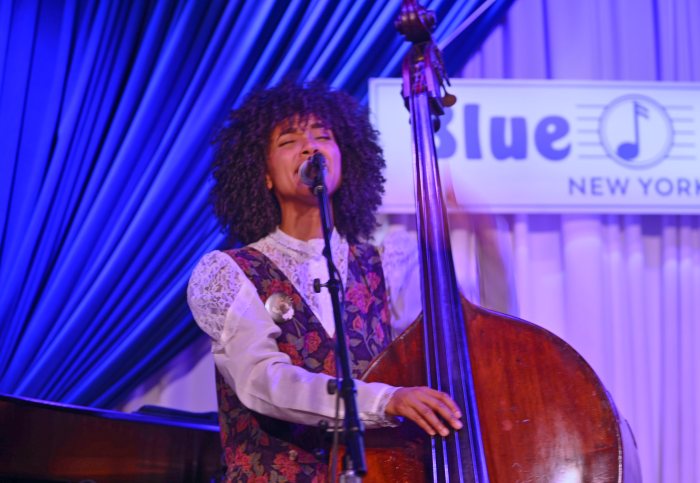“Orange Is the New Black’s” Selenis Leyva stars in “Tell Hector I Miss Him,” a timely play about the residents of Old San Juan, Puerto Rico, whose stories are regularly glossed over in favor of attractive tourism sights.
The contemporary work from playwright Paola Lázaro follows 12 characters living in the shadow of the city’s landmarked 16th-century buildings — some are living on the fringe, others are trying to escape their situation. But all have the same goal — to survive.
amNewYork sat down with Leyva to talk about the importance of the all-Latino production, “Orange Is the New Black” and art as a political platform.
What do you want this play to say about the lives of the residents of Puerto Rico?
I want it to say that people shouldn’t have judgment of people who are in the lower class, because of their finances and education. At the end of the day, we all have the same problems. It’s just like the characters on “Orange” — just because it takes place in a prison doesn’t mean that their stories aren’t of value.
Being that Puerto Rico is in such a dire condition now with its debt crisis and the rise of crime, this play is a really timely piece of art.
Art is going to be really important for the next four years. I do agree that it’s beautiful, despite what Puerto Rico is going through right now, that we can show that even in that world there is still time for laughter, for real communication. That’s what this story shows — it may not all be perfect, these people are just humans trying to survive.
You must have such a special connection with co-star Dascha Polanco from working closely with her on “Orange” and now with this play. Is that something that developed organically?
From day one we’ve been buddies. We clicked. We have similarities — we’re mothers, daughters of immigrants and single moms. There’s a sisterly bond for sure, and the fact that we’re able to be on stage together is so wonderful. This is a special play. It’s a Latino ensemble, it’s a voice that needs to be heard right now.
And you don’t typically see that either.
You don’t and that’s something that’s so sad, but as we know it’s not common, especially in the mainstream theater. It’s really quite refreshing to kind of have others listen to our stories. Our stories are of value as well and we are being ignored in Hollywood, I feel. With all the strides that happen for the African American community, we still haven’t had that as Latinos. Our stories are still absent. This play shows that there are different types of people. That’s something that we haven’t seen as far as Latinos go.
On “Orange,” we saw this huge uprising in response to Poussey’s death. What was your reaction when you read that script?
Losing Poussey [Samira Wiley] affected everyone across the board. It affected the fans and us on stage. That day when we were shooting that scene, it was really hard because this is a person that we’ve been with from day one, so we did lose a family member.
The show has done a great job of bringing the sociopolitical environment of the outside world into Litchfield. How do you think the inmates’ environment will be affected by the new president?
What I can say about season five, is that you will definitely see [what happens] when power is used in the wrong way, when power is used in a way to hurt, and used to strangle folks and to hush them, like what’s happening now in our political world. … Do you come together to stand against it or do you fall apart? We’ll see the inmates really bonding together and give a rise to say, “We’re not happy.” That’s what you’re going to feel in Litchfield — the rise of the inmates. It’s very much what’s happening in our world — do we unite as a people or do we end up dividing?
If you go: “Tell Hector I Miss Him” runs through Feb. 19 at Atlantic Stage 2, 330 W. 16th St., atlantictheater.org





































